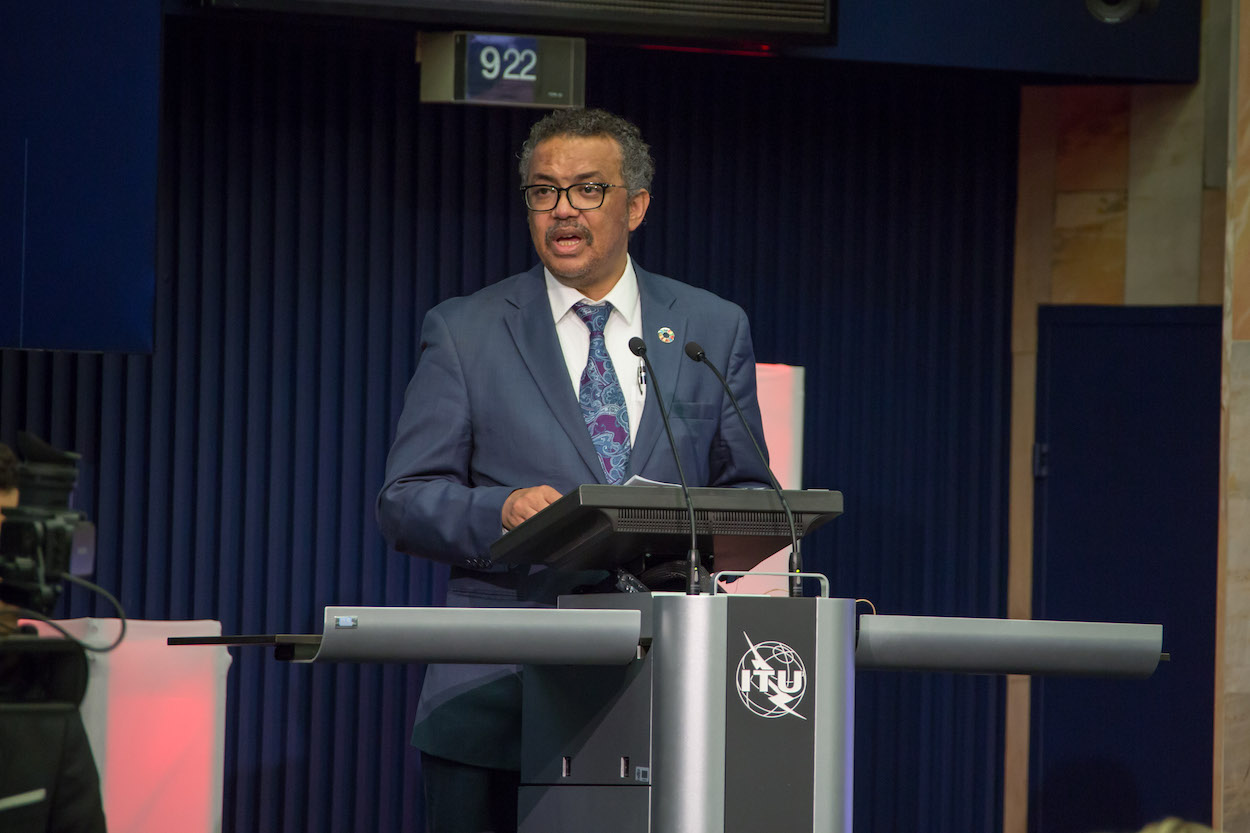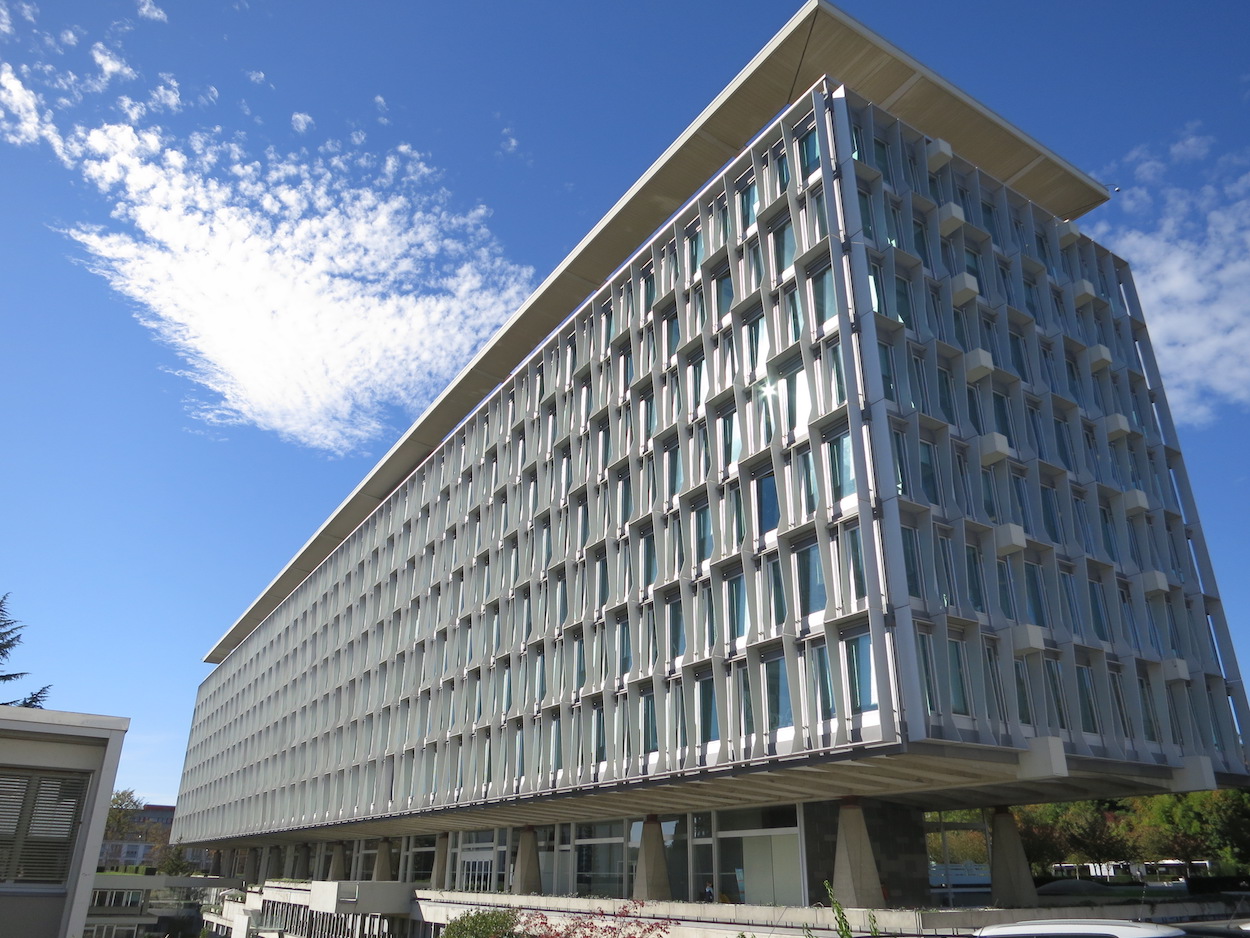by Brian Hioe
語言:
English
Photo Credit: United Nations Mission Geneva/WikiCommons/CC
IT HAS BEEN an inadvertent consequence that increasing attention has been drawn to Taiwan’s exclusion from international organizations as a result of the COVID-19 coronavirus outbreak.
Taiwan is excluded from a number of international organizations due to Chinese pressure. Apart from Taiwan’s exclusion from the United Nations (UN) more generally, Taiwan is excluded from international organizations such as the World Health Organization (WHO), the UN agency focused on coordinating international health safety, and International Civil Aviation Organization (ICAO), the UN agency which coordinates international aviation.
 WHO director Tedros Adhanom Ghebreyesus. Photo credit: ITU Pictures/WikiCommons/CC
WHO director Tedros Adhanom Ghebreyesus. Photo credit: ITU Pictures/WikiCommons/CC
Taiwan’s exclusion from such organizations occurs because of China’s refusal to allow Taiwan to participate in such organizations, as a means of diplomatic coercion. This occurs despite the risks to global health or to global aviation safety, given the size of Taiwan’s population, as well as the amount of air traffic that passes through Taiwan.
Notably, the last director-general of the WHO, Margaret Chan, represented the Chinese government, and the current director of the ICAO, Fang Liu, is also a Chinese national. As such, Taiwan’s exclusion from these organizations may not be surprising.
The WHO’s current director-general, Tedros Adhanom Ghebreyesus, who took office in July 2017 on behalf of Ethiopia, is often accused of being beholden to the Chinese government. This has been observed, not only with regards to repeated comments by Tedros justifying Taiwan’s exclusion from the WHO on the basis of One China Policy, but comments by Tedros praising China’s response to the COVID-19 outbreak—this despite that efforts to respond to the disaster by the Chinese government were initially slow, with more emphasis placed upon silencing whistleblowers and maintaining the appearance of stability than actually combating the disease.
One notes, for example, that despite the WHO’s Twitter initially expressing condolences deceased Chinese doctor Li Wenliang shortly after his death—Li having died after contracting COVID-19 himself and previously was forced to sign a confession by state security forces for attempting to spread awareness of the disease outbreak—the WHO later retracted this Tweet, in line with efforts by the Chinese government to delay the announcement of Li’s death in order to minimize fallout. This reminds of a similar controversy in past weeks regarding the ICAO’s Twitter account blocking critics of its Taiwan policy, a controversy that led to a response from the US State Department.
Taiwan’s exclusion from the WHO has had real-world effects, as observed in Taiwan being denied crucial resources regarding the COVID-19 outbreak, as well as medical resources, and for international flights between Taiwan, Italy, and the Philippines to be suspended. Flight suspensions occurred despite that Taiwan had imposed a temporary ban on visitors to Taiwan from China, Macau, and Hong Kong and is not the same polity as China. While Italy and the Philippines justified these actions as having taken place on the basis of Taiwan’s inclusion as part of China by the WHO, the governments of Italy and the Philippines may have also feared offending the Chinese government. After a long back and forth, with the Taiwanese government threatening sanctions, the government of the Philippines eventually allowed for flights from Taiwan earlier this week.
Given global concern about the COVID-19 epidemic, this has led to statements of support for Taiwan’s inclusion in the WHO as an observer from the US, Canada, EU, and Australia. One notes that most of these countries do not diplomatically recognize Taiwan either, nor were they calling for Taiwan’s participation in the WHO in any capacity beyond as an observer, but momentum to push for Taiwan’s inclusion in the WHO was likely stronger than in the past in the wake of the outbreak, because of fears regarding the possible consequences of China’s politicization of global health. As a result, Taiwan was eventually allowed to participate in a WHO forum earlier this week, with China relenting on the issue.
 WHO headquarters. Photo credit:
WHO headquarters. Photo credit:
But to this extent, it is not impossible that recent actions by the Chinese government are aimed at hitting back against increased global support for Taiwan. For example, it proves an unusual move for China to have sent fighter planes to fly around Taiwan earlier this month for two days in a row, despite that the Chinese government should be placing greater importance on fighting the spread of COVID-19 at present. Likewise, China has increased economic pressure on Eswatini, one of Taiwan’s few remaining diplomatic allies, to break ties with Taiwan in the last few weeks.
It has been speculated that military drills by China may have been aimed at distracting from domestic discontent within China, by attempting to redirect the attention of the Chinese people to an external enemy. Alternatively, such actions could have been aimed at influencing trade negotiations with the Trump administration, targeting Taiwan as a proxy for the US. It is also probable that such actions by China are aimed at pressuring the Tsai administration, given the election victory of the Tsai administration last month.

